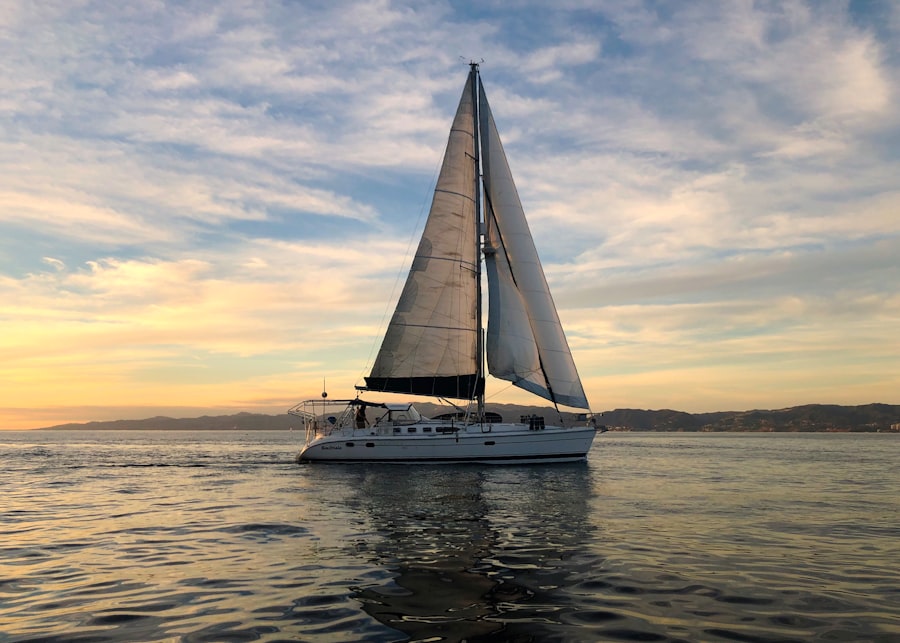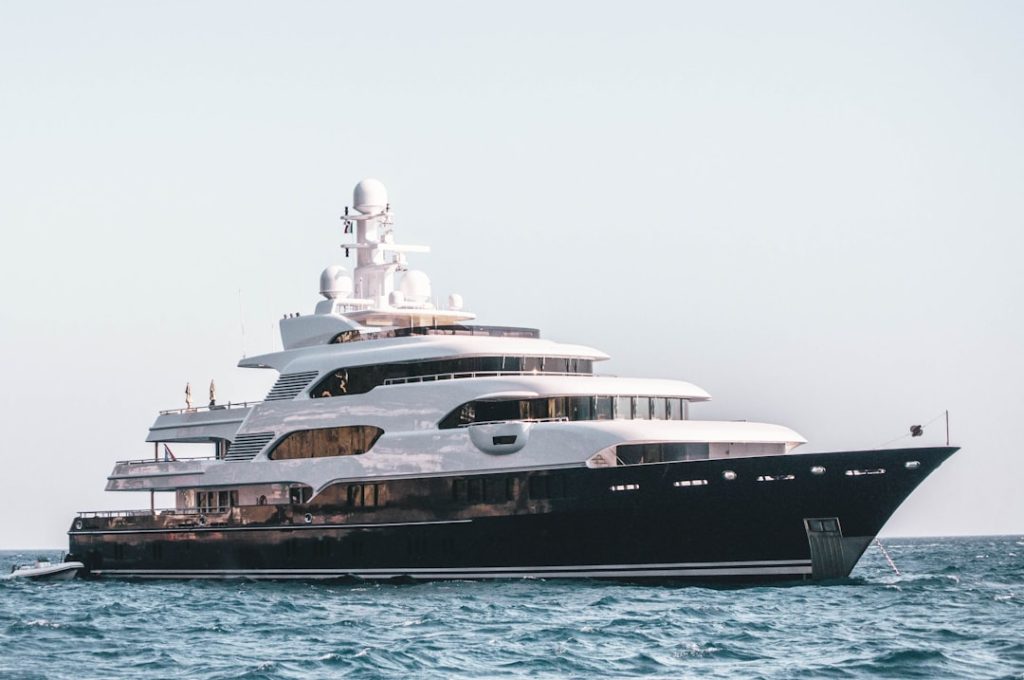Selecting the right boat is a pivotal decision that can significantly influence your overall boating experience. The first step in this journey is to identify the primary purpose of your boat. Are you looking for a vessel to enjoy leisurely weekends on the water, or do you have aspirations of fishing in deep seas?
Perhaps you envision hosting gatherings with friends and family on a spacious deck. Each of these scenarios calls for different types of boats, such as pontoon boats for socializing, fishing boats for angling enthusiasts, or sailboats for those who appreciate the art of sailing. Understanding your intended use will help narrow down your options and guide you toward a boat that aligns with your lifestyle.
Once you have a clear idea of your boating needs, it’s essential to consider the size and capacity of the boat. A small kayak or canoe may suffice for solo adventures or intimate outings, while larger vessels like cabin cruisers or yachts can accommodate more passengers and provide additional amenities. Additionally, think about where you plan to store your boat.
If you live in an area with limited space, a trailerable boat might be more practical than a larger vessel that requires a dedicated slip at a marina. Furthermore, consider the ease of handling and maneuverability; if you’re a novice boater, a smaller, more manageable craft may be the best choice to build your confidence on the water.
Key Takeaways
- Select a boat that fits your lifestyle, budget, and intended use.
- Be aware of all ownership costs, including insurance, maintenance, and storage.
- Follow safety regulations and secure proper insurance to protect yourself and your boat.
- Regular maintenance is essential to keep your watercraft in good condition.
- Engage with boating communities and choose safe, enjoyable locations for the best experience.
Understanding the Costs of Boat Ownership
Owning a boat involves more than just the initial purchase price; it encompasses a range of ongoing expenses that can add up quickly. The first major cost is the purchase itself, which can vary dramatically based on the type, size, and brand of the boat. New boats often come with warranties and the latest technology, but they also carry a higher price tag.
Conversely, used boats can offer significant savings but may require more maintenance and repairs. It’s crucial to conduct thorough research and possibly enlist the help of a marine surveyor to assess the condition of any used vessel before making a commitment. Beyond the purchase price, prospective boat owners must also factor in costs such as insurance, registration fees, and maintenance expenses.
Boat insurance is essential for protecting your investment against potential damages or liabilities. Rates can vary based on factors like the type of boat, its value, and your boating experience. Additionally, registration fees differ by state and can be influenced by the size and type of your vessel.
Maintenance is another critical aspect; regular upkeep such as oil changes, hull cleaning, and engine checks are necessary to ensure your boat remains in good working order. These costs can fluctuate based on how often you use your boat and the specific requirements of your model.
Navigating Boat Insurance and Safety Regulations

Understanding boat insurance is vital for any owner, as it provides financial protection against accidents, theft, and damage. There are several types of coverage available, including liability insurance, which covers damages to other people or property if you are at fault in an accident. Comprehensive coverage protects against non-collision incidents such as theft or weather-related damage.
When selecting an insurance policy, it’s important to assess your needs carefully; factors such as how often you use your boat and where you typically navigate can influence your coverage requirements. In addition to insurance considerations, boat owners must also familiarize themselves with safety regulations that govern boating in their region. These regulations can vary significantly from one state or country to another and may include requirements for life jackets, fire extinguishers, and navigation lights.
Many jurisdictions mandate that boat operators complete safety courses before they are allowed to operate certain types of vessels. Compliance with these regulations not only ensures your safety but also helps protect others on the water. Regularly reviewing local laws and guidelines is essential for responsible boating.
Maintenance and Upkeep of Your Watercraft
| Maintenance Task | Frequency | Tools/Materials Needed | Estimated Time | Notes |
|---|---|---|---|---|
| Engine Oil Change | Every 50 hours or annually | Engine oil, oil filter, wrench | 30-45 minutes | Use manufacturer recommended oil type |
| Hull Cleaning | Monthly during boating season | Soft brush, marine soap, water hose | 1-2 hours | Prevents algae and barnacle buildup |
| Battery Check | Monthly | Multimeter, battery terminal cleaner | 15-20 minutes | Ensure terminals are corrosion-free |
| Propeller Inspection | Every 3 months or after impact | Visual inspection, wrench | 20-30 minutes | Check for dents, cracks, or fishing line |
| Fuel System Check | Annually | Fuel stabilizer, fuel filter, wrench | 1 hour | Replace fuel filter and clean tank if needed |
| Winterization | Annually before storage | Antifreeze, fogging oil, fuel stabilizer | 2-3 hours | Protects engine and systems from freezing |
| Electrical System Inspection | Every 6 months | Multimeter, wiring tools | 30-45 minutes | Check wiring, lights, and connections |
Proper maintenance is crucial for prolonging the life of your boat and ensuring it operates safely and efficiently. Regular inspections should be part of your routine; checking for signs of wear and tear on critical components such as the hull, engine, and electrical systems can prevent minor issues from escalating into major problems. For instance, inspecting the hull for cracks or blisters can help identify potential leaks before they become serious concerns.
Additionally, keeping an eye on the engine’s performance and fluid levels can help catch any irregularities early on. Seasonal maintenance tasks are also important to consider. Before launching your boat each season, it’s wise to perform a thorough cleaning and check all systems to ensure they are functioning correctly.
This includes flushing the engine cooling system, checking battery connections, and inspecting safety equipment like life jackets and flares. After each outing, rinsing off saltwater or debris can prevent corrosion and buildup that could damage your vessel over time. By establishing a consistent maintenance schedule and keeping detailed records of all work performed, you can enhance your boat’s longevity and reliability.
Finding the Best Boating Locations
The joy of boating is often amplified by the beauty of the locations you choose to explore. Identifying prime boating spots requires some research into local waterways, lakes, rivers, and coastal areas that cater to your interests. For instance, if you enjoy fishing, look for lakes known for their abundant fish populations or coastal areas with rich marine life.
Websites dedicated to boating communities often provide valuable insights into popular destinations along with user reviews that can guide your choices. In addition to natural beauty, consider amenities available at various locations. Some marinas offer services such as fuel docks, restaurants, and repair facilities that can enhance your experience on the water.
Accessibility is another factor; ensure that the locations you choose are convenient to reach from your home or storage facility. Furthermore, be mindful of local regulations regarding boating in certain areas; some regions may have restrictions on motorized vessels or specific times when boating is permitted. By carefully selecting your boating locations based on both natural beauty and practical considerations, you can create memorable experiences on the water.
Joining a Boating Community

Becoming part of a boating community can significantly enrich your experience as a boat owner. These communities often provide opportunities for social interaction, shared knowledge, and camaraderie among fellow enthusiasts who share similar interests. Many local clubs organize events such as group outings, fishing tournaments, or educational workshops that can enhance your skills and deepen your appreciation for boating.
Engaging with others who have more experience can also provide valuable insights into best practices for maintenance, navigation techniques, and safety measures. Online forums and social media groups dedicated to boating are another excellent way to connect with like-minded individuals. These platforms allow members to share tips, ask questions, and discuss various topics related to boating culture.
Whether you’re seeking advice on equipment upgrades or looking for recommendations on scenic routes to explore, these communities can serve as invaluable resources. Additionally, participating in local events or charity functions organized by boating clubs can foster friendships while contributing positively to your community.
Tips for Safe and Enjoyable Boating
Safety should always be a top priority when enjoying time on the water. One fundamental aspect of safe boating is ensuring that all passengers wear life jackets at all times while onboard. This simple precaution can save lives in emergencies when quick action is required.
Additionally, familiarize yourself with basic navigation rules and signals to ensure smooth interactions with other vessels on the water. Understanding right-of-way rules is essential for preventing collisions and maintaining safe distances from other boats. Another critical safety measure involves being prepared for changing weather conditions.
Always check weather forecasts before heading out and be aware of any potential storms or adverse conditions that could arise during your outing. Carrying essential safety equipment such as flares, first aid kits, and fire extinguishers is also crucial; these items can make a significant difference in emergency situations. Lastly, maintaining a sober environment onboard is vital; alcohol consumption can impair judgment and reaction times while operating a vessel.
Selling Your Boat: What to Consider
When it comes time to sell your boat, several factors should be taken into account to ensure a successful transaction. First and foremost is determining an appropriate asking price based on market research; examining similar boats for sale in your area can provide insight into competitive pricing strategies. Additionally, consider any upgrades or modifications you’ve made that could enhance its value; documenting these improvements can help justify a higher asking price.
Preparing your boat for sale involves more than just setting a price; it’s essential to present it in its best light to attract potential buyers. Thoroughly cleaning both the interior and exterior will create a positive first impression while addressing any minor repairs will demonstrate that you’ve taken good care of the vessel over time. High-quality photographs showcasing its features can significantly enhance online listings; consider hiring a professional photographer if necessary to capture its best angles effectively.
In conclusion, navigating the world of boating ownership involves careful consideration at every stage—from choosing the right vessel to understanding costs associated with ownership and ensuring safety on the water. By engaging with communities and staying informed about best practices in maintenance and safety regulations, you can cultivate an enriching experience that enhances both personal enjoyment and responsible stewardship of our waterways.


